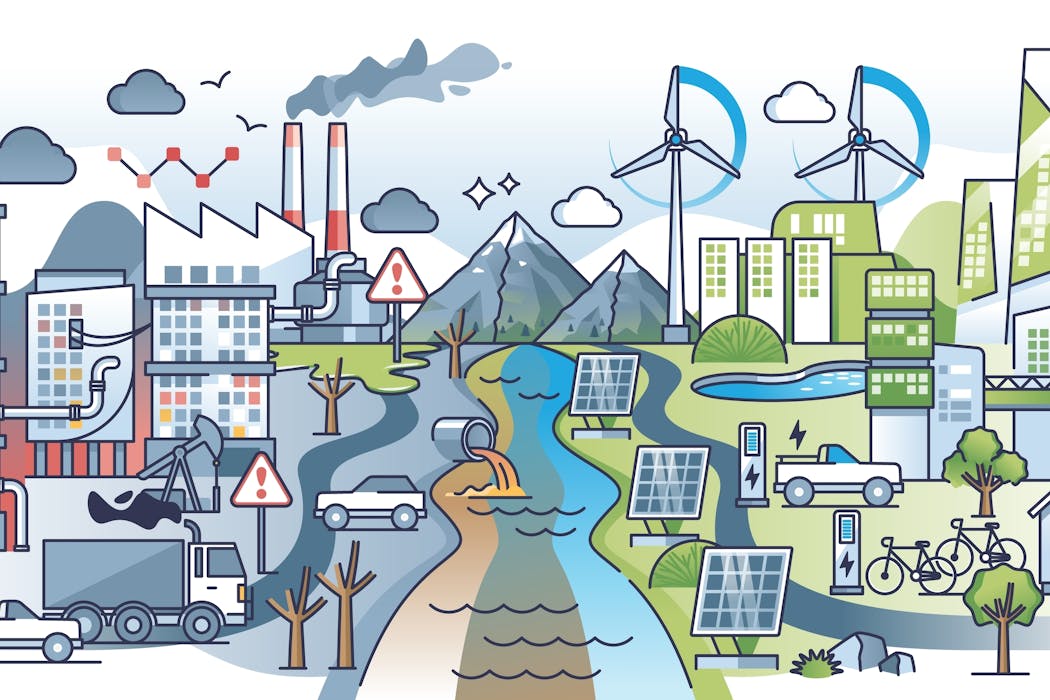Why ‘green’ finance isn’t always as sustainable as it seems
- Written by Maud Borie, Senior Lecturer in Environment, Science & Society, King's College London

In the wake of the 2007-08 global financial crisis, green finance has been increasingly celebrated as a way to tackle environmental challenges. Banks, investment funds and insurers have rolled out a growing range of green products, from green bonds to sustainability-linked loans. This momentum is encouraged by international environmental efforts such as the Paris climate agreement.
By aligning financial flows with sustainability goals, the world can supposedly “green finance” its way into a sustainable future.
But beneath this green spectacle lies a more complicated reality. Green finance[1] refers to a wide-ranging mix of private and public funds, products and practices. For example, there’s no consensus regarding what makes a bond green[2].
There is also little clarity around what current environmental, social, governance (ESG)[3] frameworks – which encourage businesses and authorities to disclose and monitor their environmental and social performance – are truly achieving.
Mounting evidence[11] suggests a gap between the suggested possibilities and the actual outcomes of green finance. Many green finance products appear to serve financial markets and the wealthiest investors more than nature or vulnerable communities.
Even more concerning are the unintended consequences. Far from levelling the playing field, green finance can exacerbate inequality. For example, communities have been displaced to make room for renewable energy projects or offset schemes.
This creates what are known as green sacrifice zones[12]: areas where environmental harm or social costs are tolerated in the name of advancing “green” goals.
Poorer countries often face higher borrowing costs in the name of climate risk, while wealthy economies continue to access cheaper capital. Insurance premiums are also rising in climate-vulnerable regions, pricing out those least able to afford them. So green finance can make the situation for the most vulnerable populations worse.
In its current form, green finance will most likely sustain business as usual, leaving the causes of environmental crisis untouched.
For green finance to deliver the transformative change its advocates promise, it must address the deeper political and social issues, such as the role of public authorities in regulating finance, or the relationship between green investment and global inequality.
If green finance is to serve collective wellbeing rather than the interests of a privileged few, we need rigorous and proactive public regulations and better public debates on what green finance ought to account for.
References
- ^ Green finance (theconversation.com)
- ^ what makes a bond green (kclpure.kcl.ac.uk)
- ^ environmental, social, governance (ESG) (www.youtube.com)
- ^ Green Your Money (theconversation.com)
- ^ Mark Carney (www.bankofengland.co.uk)
- ^ Stuart Kirk (www.youtube.com)
- ^ deforestation in Sumatra (mightyearth.org)
- ^ Green bonds can help finance clean energy – as long as the projects they fund are transparent (theconversation.com)
- ^ our study (www.tandfonline.com)
- ^ Taljat David/Shutterstock (www.istockphoto.com)
- ^ Mounting evidence (gijn.org)
- ^ green sacrifice zones (thinklandscape.globallandscapesforum.org)
- ^ Get a weekly roundup in your inbox instead. (theconversation.com)
- ^ Join the 45,000+ readers who’ve subscribed so far. (theconversation.com)
Read more https://theconversation.com/why-green-finance-isnt-always-as-sustainable-as-it-seems-265240







